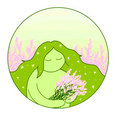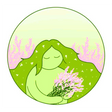If you haven't made your own herb infused honey yet, we highly encourage you to try it. It's super easy and can lift the taste of the honey, as well as diversify the uses of the honey.
Herbal honeys are a gentle, lower dose alternative to herbal tinctures. They will only deliver a fraction of the medicinal dose of a herbal tincture or tea, but they will still provide some medicinal benefits - not to mention the incredible health-promoting properties of eating local, raw honey. The benefits are endless, both internal and external.
Herbal honeys are wonderful for a sore throat, a tickly cough, a boost of energy, as a daily preventative against bugs, and as a general pick-me-up.
They are an excellent option for those who can't or choose not to drink alcohol, for those who don't like the taste of herbal tinctures, and for the younger ones who prefer something sweeter when taking medicine.
Aside from the medicinal benefits, honey can be added to any cup of tea, drizzled over pancakes, stirred into overnight oats, granola, added into smoothies, drizzled over dessert, etc. You can even just spread it on your morning toast.
There are a wide range of herbs that can be made into herbal honey - Lemon Balm, Hyssop, Thyme, Elecampane root, Rose petals, Violets, Sage, Oregano, Garlic and Onions are some that we regularly use. Garlic and onion honey is particularly good for preventing coughs and colds before you get sick, or at the first sign of getting sick. Alongside taking the honey, we recommend lots of bed rest, clean water and healthy, whole foods.
Lavender is also very popular, but we would recommend not going too crazy with the Lavender as it can be a very polarising flavour and your honey may end up a bit soapy in taste!
To make your herbal honey:
Half fill a jar with fresh or dried herbs, cover with honey (warm it slightly if it's too thick) and fill to the top of the jar.
Seal and leave in a sunny place for at least six weeks so that it fully infuses and captures the flavour and medicinal benefits of the plant.
Turn the jar often to ensure even infusion of all of the plant material.
After six or so weeks, warm the honey a little to make it runny then strain it through a mesh sieve into a clean, sterilised jar, label and store in a cool, dark place. This will keep for a number of years. If it crystallises, just gently warm it.
Note: Don't overheat the honey or you'll destroy all of the medicinal qualities of it. Just very gently warm it in a water bath.
It's okay to have bits of plant material still left in the honey after you've strained it. You can eat this if you don't mind the texture. If you don't like bits of plant material in the honey, strain it a second time and/or use cheese cloth.
There is no set dosage per se, but for children over 2 years, we would recommend a half teaspoon a few times a day for a sore throat, a dry cough, or as a general tonic. Or little and often will be good here, ie a quarter teaspoon every hour or so.
For children over 5 years of age, give them a full teaspoon up to four times a day. Again, little and often is also good here, ie half a teaspoon every hour or so.
For teenagers and above, take a tablespoon up to four times a day.
Enjoy!







